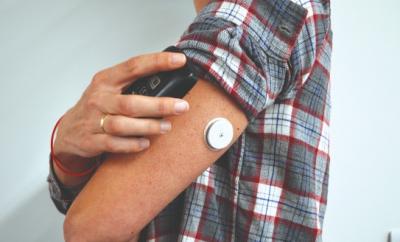We’ve updated our position statement on Flash glucose monitoring this week. Liz Perraudin, Senior Policy Officer, explains why we are calling for all people living with type 1 diabetes and people living with other types of diabetes who use insulin intensively (four or more injections a day) to be given access to Flash glucose monitoring, or Flash for short.

In recent years huge progress has been made towards more people having access to Flash across the UK.
Looking back to 2017, when we successfully campaigned for Flash to became available on prescription, we estimated that under 5% of people with type 1 were using the technology. Now, in Northern Ireland, for example, we estimate that around 80% of people with type 1 diabetes are using Flash. In England it's around 50%.
But we know that many more people with diabetes can and should be accessing the technology.
The evidence is clear – Flash improves quality of life and blood sugar management. Data collected from people using Flash shows they have lower HbA1c, improved time in range and fewer hospital admissions. People using it also have lower rates of diabetes distress.
This evidence tells us that this isn't only true for people with type 1 diabetes. Data from France, for example, where lots of people with type 2 diabetes who use insulin intensive therapy have access to Flash, shows the technology is beneficial for people with type 2 diabetes as well.
This is why we’re calling for wider access to Flash. We think the following groups should routinely be offered access to the technology:
- All people with type 1 diabetes.
- People with type 2 diabetes using insulin intensively.
- All people with any type of diabetes who are undergoing any form of dialysis.
We are also calling for more people, who may not be in the above groups, to be considered for Flash glucose monitoring. This includes people who experience problematic hypos (for example if they have several in a week), people who live with a learning disability, regardless of whether they use insulin, and people whose occupation means finger-prick testing is difficult.
We know there is work to do to make sure the asks we are making here become a reality. Our Diabetes is Serious campaign is calling for, amongst other things, greater government investment in diabetes technology. Find out more about the campaign and how to get involved.
